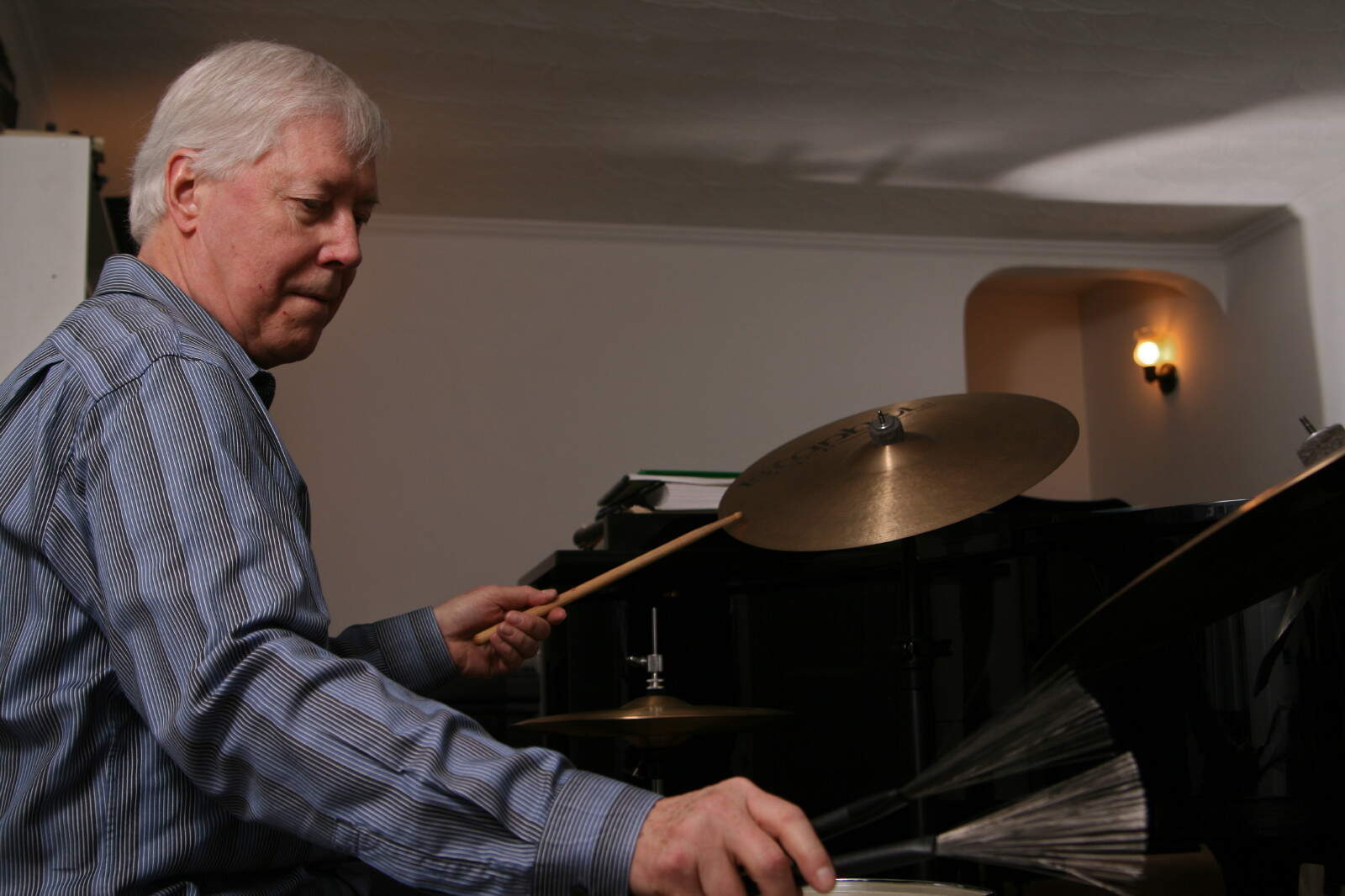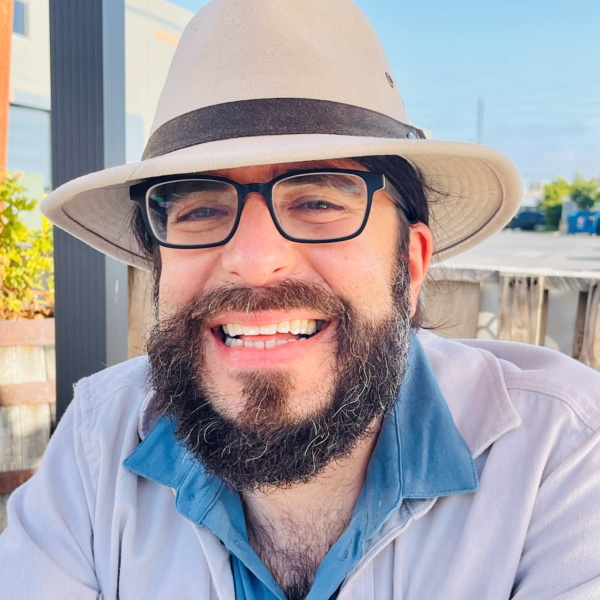Advertisement
At 85, low-key Boston jazz legend Joe Hunt plays on

Walk into Joe and Yuka Hamano Hunt’s East Cambridge apartment and you’ll find that most of it is filled by a piano, a drum kit and shelf after shelf of jazz vinyl and CDs. “We were just talking about a song we want to play at our next show,” drummer Joe Hunt tells a visitor. Eagerly rushing to a CD shelf, he pulls out the soundtrack to the 1958 film “I Want To Live!” and puts on “Barbara’s Theme.” While Joe and pianist Yuka discuss how they will need to rearrange the big band piece for their quartet with bassist John Lockwood and saxophonist Mark Pinto, Joe puts a glass of water on a coaster featuring an image of a classic album: “Getz/Gilberto,” the disc by Stan Getz and João Gilberto that helped introduce Brazilian bossa nova to the world thanks to Astrud Gilberto's vocals on “The Girl from Ipanema.”
Although that coaster can be found in the homes of plenty of jazz lovers, not many can boast that they recorded, played Carnegie Hall and even made a film with Getz and the Gilbertos. It was just one of the many important groups that Hunt played with during the 1960s, a decade that started with Hunt playing in the sextet led by the groundbreaking pianist and composer George Russell (a band that also included Eric Dolphy), and included a period playing in a trio led by another jazz immortal, Bill Evans.
Despite such jaw-dropping credits, Hunt has maintained a relatively low profile. A large part of that is because while many of his colleagues in those ‘60s bands established themselves as leaders, or kept working steadily in New York, Hunt moved to Boston in 1971 to focus on teaching. Only since retiring from three decades at what is now Berklee College of Music has Hunt become a regular leader of his own group, which plays the third Sunday of every month at The Lilypad in Cambridge. After a brief hiatus that allowed Hunt to recover from some health issues, he’ll be hosting a belated celebration of his 85th birthday on Sunday, Oct. 15.
Hunt, like several other important jazz drummers, grew up in Richmond, Indiana, a small town with a rich jazz history. Self-taught on the drums, he trained classically in college before moving to New York to play with Russell. Hunt quickly became a presence on the New York scene, often playing with bassist Chuck Israels. Not every opportunity panned out. In 1962, Hunt was recruited to become Benny Goodman’s drummer. But at his first rehearsal at the Basin Street East nightclub, the mercurial Goodman fired Hunt after half a song. Soon after, Hunt was drafted and served in Hawaii. Right when his Army stint was up, Israels told Hunt that Getz was looking for a drummer — and that he should come meet the saxophonist at Basin Street East. “So I got hired at the same club I got fired at,” laughs Hunt.
Getz had a reputation for both substance abuse and temper tantrums, both of which Hunt witnessed. But Hunt says that “he always played beautifully … and something I noticed about him, which never came out in any of the biographies that I ever read, was he was a very thoughtful person.”
Also in Getz’s quartet was vibraphonist Gary Burton, who described Hunt in an email: “As a player, Joe has always been one of those admirable musicians who has everything together, always fitting in with whatever is going on in the songs, and he is super comfortable to play with. As a soloist, I want a drummer whose message is ‘I’ve got this covered, you don’t have to worry about a thing, just focus on your solos.’ That was playing with Joe.” When asked to describe Hunt’s playing, Chuck Israels replied with a one-word response: “Elegance.”
The year spent touring with Evans was challenging, as Hunt had to contend with Evans’ well-documented heroin addiction as well as Hunt’s realization that “I was in love with his music, but I didn't fit with him very well musically.”
Advertisement
According to Boston jazz historian Richard Vacca, Hunt likely made his Boston debut playing at the Jazz Workshop on December 31, 1964 in a group led by Herb Pomeroy, and he’d frequently return for gigs after this performance. At the end of the 1960s, Hunt was playing psychedelic jazz-rock with Atlantic Records act Ars Nova. But he found that the New York scene was becoming a world where hard drug use was frequent and steady work wasn’t. Fortunately, Hunt’s former bandmate, Gary Burton, offered an escape plan.
“As I was leaving for Boston to begin my teaching career at Berklee in 1971, someone mentioned they were looking for an established player to teach drums. I recommended Joe, so we started at Berklee together. He was a natural at teaching — steady and likable and a total professional,” says Burton.
While Hunt has had his share of students who went on to jazz fame — John Scofield, Jeff “Tain” Watts and Joey Baron among them — he seems equally proud of teaching some drumming basics to a neighbor who joined an ensemble at Arlington’s Morningside Music Studio where both of the Hunts have taught. “She was this 67-year-old who’d never played before. And she had a beat to die for!”
At 85, Hunt can barely contain his eagerness to get back to The Lilypad. “Music — it’s always exciting,” he says with a smile.
The Joe Hunt Quartet plays Sunday, Oct. 15, and every third Sunday, at 8:30 p.m. at The Lilypad, 1353 Cambridge St., Cambridge.


